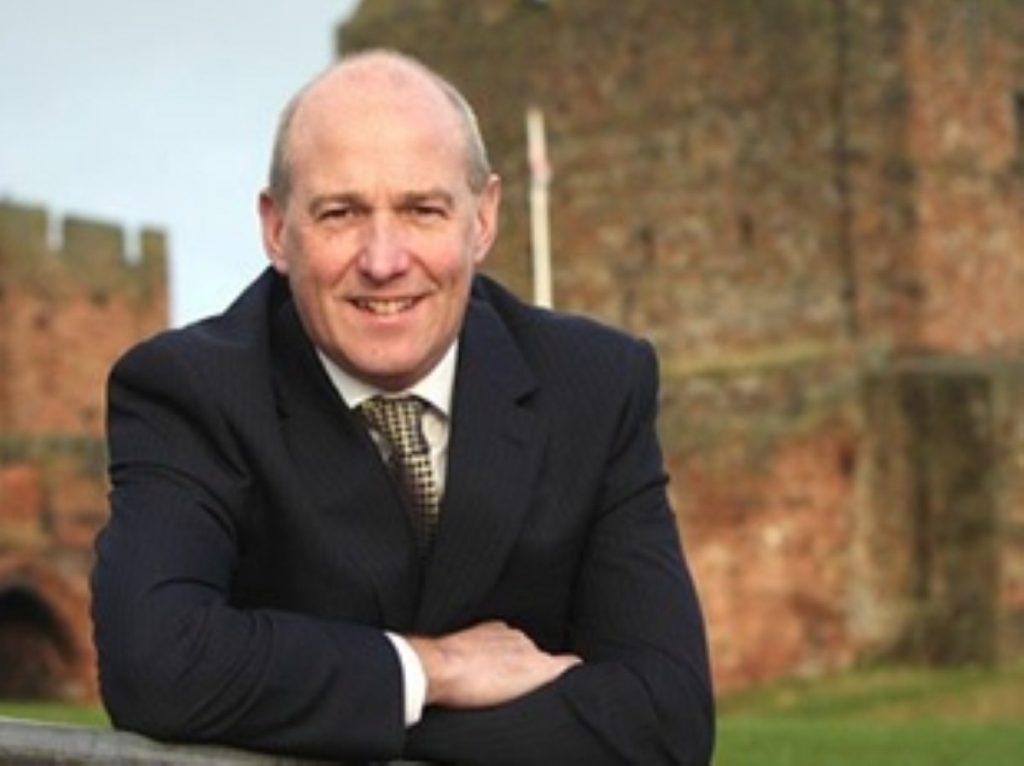Comment: Elected mayors can reinvigorate our democracy
Britain has become over-centralised, with local government largely faceless. Elected mayors can bring our democracy back in step with the rest of the world.
By John Stevenson MP
The topic of elected mayors is a significant one, and yet despite its enormous potential to profoundly affect our democracy, it often tends to fly below the radar. Politicians and commentators alike have largely underestimated the potential impact that widespread acceptance of elected mayors could have on British politics.
The British tradition of ceremonial mayors puts us a step behind other democracies. In the United States, Commonwealth countries and most European states, the role of an elected mayor is an integral component of local democracy. There is no reason why this should not be the case in Britain.


The idea of elected mayors was first introduced by the Blair government through the Local Government Act 2000. To bring in an elected mayor required, a referendum to be initiated either by the council or by a petition of at least 5% of those eligible to vote in that area.
The Local Government and Public Involvement in Health Act 2007 went a stage further, making amendments which allowed elected mayors to be introduced by a simple resolution of a council, passed by a two thirds majority. It is clear that the Blair government genuinely believed that elected mayors were a good thing and that they really did want elected mayors to succeed and become widespread. Indeed, they expressed their disappointment in 2006 at the fact that they had not become more common place.
It has to be acknowledged that the success of elected mayors to date has been somewhat mixed. Since the Local Government Act of 2000, which was followed closely by the introduction of the London Mayor, there have been 37 mayoral referendums. Of these, 13 have voted in favour and the remainder have voted against.
Reasons as to why the idea did not take off are threefold. Firstly, there has generally been a very low level of central support for elected mayors. Other issues have had higher precedence on the national political agenda, and all national parties did not engage themselves with or campaign strongly on the subject – the Blair government was particularly guilty of this (this however may be starting to change). Secondly, the entrenched views of local parties, particularly councillors, council leaders, opposition leaders and council officers often collectively prevented the issue from climbing the local agenda.
Finally, apart from London, the subject has simply not been publicised or debated with the general public in a way that has truly engaged with them though this again is starting to change following the high level of publicity over the London mayor and the likely introduction of 12 executive mayors in the forthcoming Localism Bill.
The present system of local government was created in the 1970s, and since then society, and indeed the structure of local government, has changed profoundly whilst the system of governance has only partially changed. Elected mayors can bring a range of advantages to help change and improve local democracy. Electing a mayor would bring a greater degree of accountability, openness and transparency in local politics, whilst fixed four year terms would allow time for manifestos to be implemented and progress to be made.
We also have to recognise the importance of personality as well as party politics in the modern age. People quite simply value visible leadership. This may lead to more independent candidates or more independently minded candidates- is that such a problem?
A better style of governance, consistent both with the government’s plans for decentralisation and demands and requirements of the modern political age, should ultimately lead to better local government. A greater level of movement between national and local politicians would also be no bad thing. Politicians from local government can bring executive experience to national government, and national politics could bring national standing and national experience to local government.
Looking forward, the government’s moves towards decentralisation are very welcome, as is the forthcoming Localism Bill. Our country has become over-centralised. Now is the time to put power back in the hands of local people to make local decisions about local issues. There is momentum for change at the local level and governance needs to change to reflect this. It is now the time for the government to include elected mayors as a vital component of our democracy.
Elected mayors have enormous potential to boost politics generally by facilitating open and transparent local government and greater opportunity for interchange between national and local politics. The political landscape is changing, and the time for elected mayors may be about to arrive.
John Stevenson is the Conservative Member of Parliament for Carlisle.
The views expressed in politics.co.uk’s comment pages are not necessarily those of the website or its owners.









